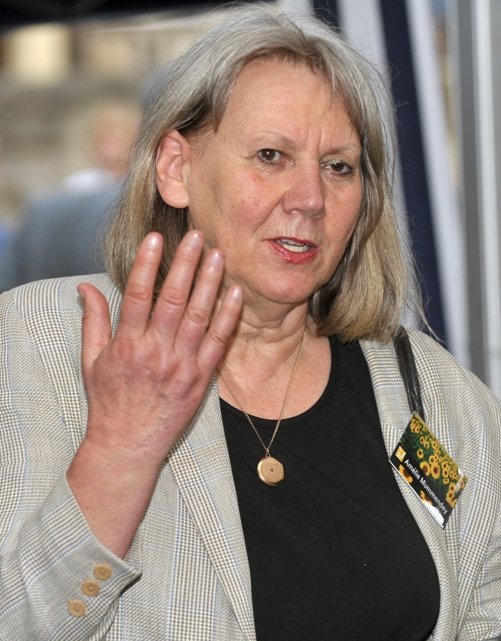Mummendey, Amélie

Amélie Mummendey was born on June 19th, 1944 in Bonn (Germany). She studied Psychology at the University of Bonn and received a PhD from the University of Mainz in 1970. In 1974 she received her Habilitation from the University of Münster, where she was professor for social psychology from 1980 until 1996. From 1997 until 2011 she was professor of Social Psychology at the University of Jena, where she also served as vice rector (2007-2011).
In her early research, Amélie Mummendey studied aggressive behaviour. In this context, and then much more broadly, she quickly became interested in the influence of group membership. Accordingly, from the beginning of the 1980s until the end of her career, she worked with numerous employees and with many international colleagues on positive and negative relationships between social groups. Both research topics reflect her intrinsic interest in socially relevant aspects of social behavior. Amélie Mummendey has been able to inspire many of her students and staff to work on these topics. In particular, she made the working group in Jena a globally recognized center for intergroup research.
Amélie Mummendey investigated how dissent between groups can lead to conflicts but also to successful cooperation. She was particularly interested in the conditions under which differences between groups are tolerated or even valued and those under which they are rejected and result in conflicts. Social discrimination, the question when and why group members explicitly behave negatively towards other groups, and how this can be reduced were among her main research concerns. Her major achievements are among others conceptualizing the positive-negative asymmetry in social discrimination, and the ingroup projection model, realizing related research with her coworkers and inspiring a lot of related work elsewhere.
Amélie was the personification of a truly social social psychologist. Throughout her career, she was inspired by societal phenomena, which she analysed with scientific methods and then translated into sound theory. This started with her early research on aggression as social interaction, and was followed by investigating various relevant moderators of social discrimination or, more broadly, intergroup relations. Throughout, Amélie was challenging theorizing and empirical findings. Is this really the whole story? Does this really function this way? What do we overlook? …
Amélie was extremely passionate about supporting junior scientists on their often rocky road to academic success. She not only encouraged those that she supervised personally in their PhD projects, but also instigated infrastructure for a much broader community of PhD students and post-doctoral researchers: She founded and headed the International Graduate College (IGC) for Conflict and Cooperation between Social Groups, a collaborative effort involving groups from Germany, Belgium (Louvain la Neuve) and the UK (University of Kent and University of Sussex), from 2000 to 2009. Moreover, as pro-rector of the University of Jena, she was responsible for the postgraduate education and involved in setting up an International Max Planck Research School. On a smaller scale, the annual Jena Intergroup Meetings provided and still provide a format where young academic talent have been getting many opportunities to present their work and exchange ideas with excellent senior researchers.
Amélie was a determined member of the EASP, which she joined in its very early days. For her, it was beyond any doubt that academic social psychologists should join the Association and contribute to its work. Accordingly, it is not surprising that so many of her former scholars followed her in taking responsibility within the EASP, for example as (associate) editors for the European Journal of Social Psychology or as members of EASP’s Executive Committee. Amélie herself served the Association in the Executive Committee, and as associate editor of the EJSP. She organized numerous conferences and smaller meetings for EASP. In addition, she taught at the EASP Summer School. In recognition of her enormous contribution to the field the EASP awarded her the Tajfel-Award in 1993, and the Codol-Award in 2011.
